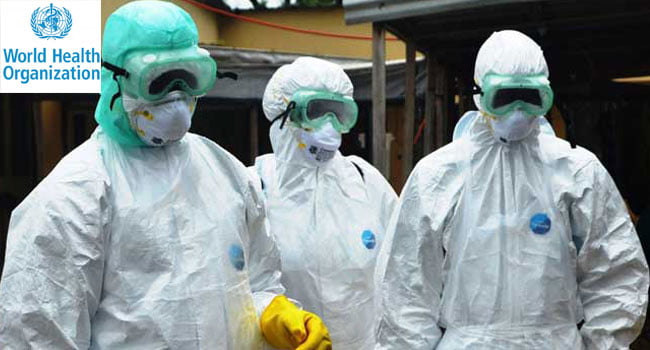WHO To Decide On Emergency Status Of Ebola In DR Congo
UN health agency experts meet on Wednesday to decide whether the Ebola outbreak in the Democratic Republic of Congo should still be considered a global health emergency, following a sharp decline in reported cases.
The World Health Organization last July declared it a “public health emergency of international concern” — a designation that gives the WHO greater powers to restrict travel and boost funding.
The outbreak was first identified in August 2018 and has since killed more than 2,300 people in eastern DR Congo — an area where several militia groups are operating.
WHO chief Tedros Adhanom Ghebreyesus on Tuesday said he was “encouraged” by an improvement in the situation, with only three cases reported in the past week.
But he added: “It’s not over. Any single case could reignite the epidemic.”
For the epidemic to be declared over, there have to be no new cases reported for 42 days — double the incubation period.
“Although the world is now focused on coronavirus, we cannot and must not forget Ebola,” Tedros said, adding that he would travel to DR Congo on Thursday to meet President Felix Tshisekedi.
The decision is ultimately up to the WHO’s Emergency Committee — a group of international experts that meets every three months once an emergency has been declared.
The designation last year came a few days after a patient was diagnosed with the virus in the provincial capital Goma — the first case in a major urban hub.
More than a month before that, the WHO reported that the virus had spread to Uganda for the first time.
The Ebola virus is passed on by contact with the blood, body fluids, secretions or organs of an infected or recently deceased person.
The death rate is typically high, ranging up to 90 percent in some outbreaks, according to the WHO.
This is the second worst outbreak of the disease since 2014 when it killed about 11,000 people — mostly in Guinea, Liberia and Sierra Leone.
Efforts to contain the current outbreak have been hindered by attacks on health workers and conflicts in the east.
The WHO said in November it had moved 49 staff out of the Beni region in eastern DR Congo because of the insecurity.
The Beni region, straddling the North Kivu and Ituri provinces, has been repeatedly attacked by the Allied Democratic Forces (ADF) rebel group,
which civic activists say has massacred more than 300 people since October.
AFP



